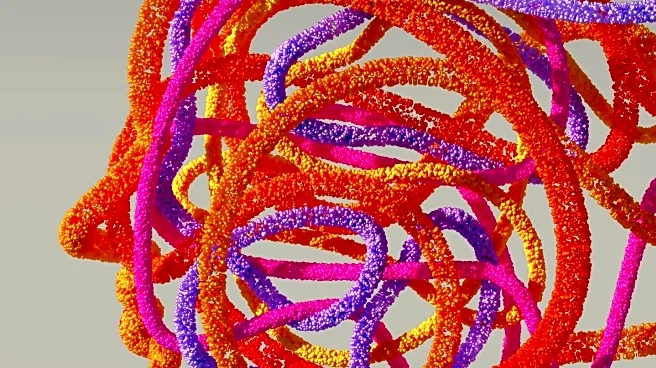What's Happening?
Recent research has uncovered a link between stress and the accumulation of somatic mitochondrial DNA (mtDNA) mutations, particularly affecting kidney function. The study focused on mice with a mutant mtDNA polymerase, which induces mtDNA lesions. These mice exhibited normal kidney function under typical conditions but showed increased susceptibility to acute kidney injury (AKI) when exposed to chronic stress. The research highlighted impaired mitochondrial function, notably reduced ATP generation, in cells expressing the mutant polymerase. Metabolomics analyses of the affected kidneys revealed a decrease in nucleotide intermediates such as adenosine, AMP, and ATP, alongside an increase in lipid species and a reduction in amino acids crucial for purine biosynthesis, including glutamate, glutamine, and glycine.
Why It's Important?
The findings are significant as they provide insight into how stress can exacerbate mitochondrial dysfunction, potentially leading to more severe kidney injuries. This research underscores the importance of understanding the molecular mechanisms behind stress-induced health issues, which could inform future therapeutic strategies for managing conditions like AKI. The study suggests that individuals with certain genetic predispositions may be more vulnerable to stress-related health complications, highlighting the need for personalized medical approaches. Additionally, the research may influence public health policies by emphasizing the role of stress management in preventing chronic health conditions.
What's Next?
Further research is likely to explore the broader implications of stress-induced mtDNA mutations across different organs and systems. Scientists may investigate potential interventions to mitigate the effects of these mutations, possibly through targeted therapies that enhance mitochondrial resilience. The study could also prompt additional investigations into the genetic factors that contribute to susceptibility to stress-related health issues, potentially leading to advancements in genetic screening and personalized medicine. Stakeholders in healthcare and research may focus on developing strategies to reduce stress and its impact on vulnerable populations.
Beyond the Headlines
The study raises ethical considerations regarding genetic screening and the potential for discrimination based on genetic predispositions to stress-related health issues. It also highlights the cultural dimension of stress management, as societal norms and practices can influence stress levels and coping mechanisms. Long-term, this research could contribute to shifts in healthcare practices, emphasizing preventive measures and holistic approaches to health that incorporate stress management as a key component.









